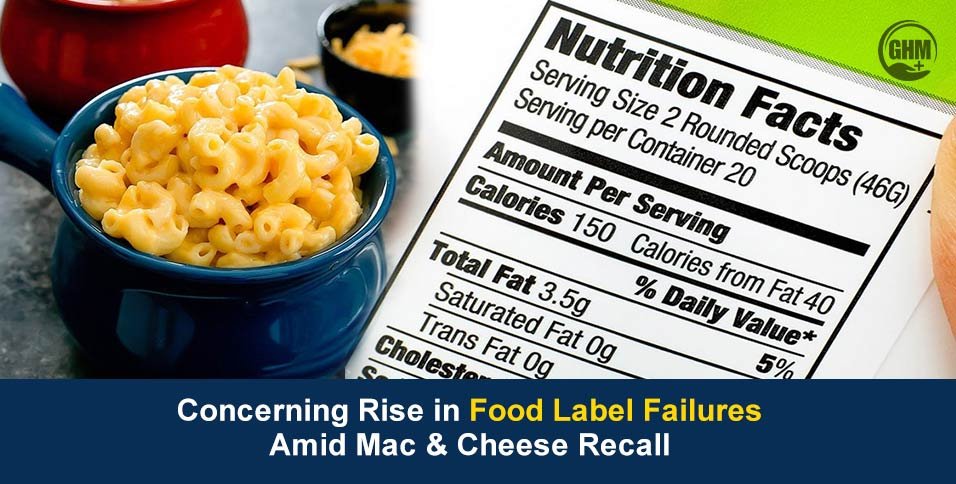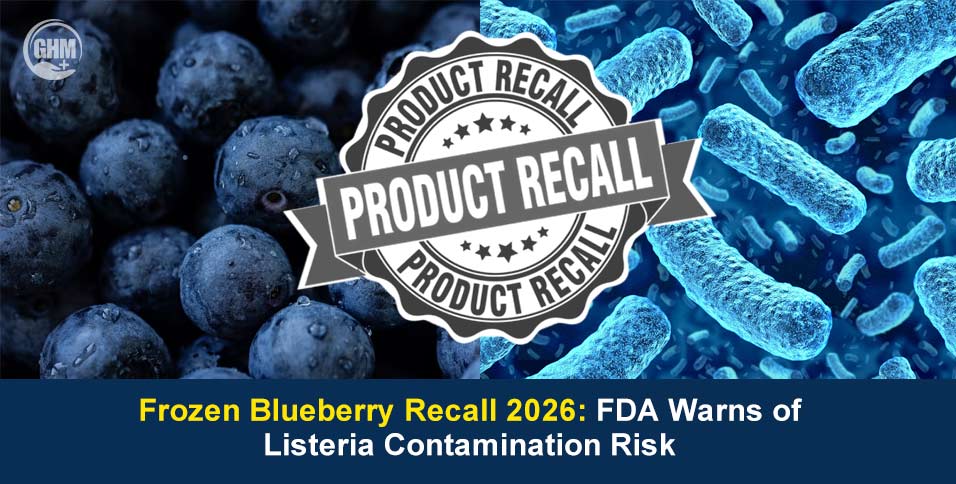In a concerning turn of events, Gooder Foods Inc. has issued a recall of several lots of its popular Goodles boxed mac and cheese. This highlights food label failures after reports of undeclared allergens led to eight allergic reactions.
The U.S. Food and Drug Administration (FDA) announced on September 10 that two flavors, “Vegan Is Believin’” plant-based white cheddar and “Here Comes Truffle” truffle-flavored pasta, were found to contain undeclared milk and cashews.
This incident has raised a larger question about why food label failures are becoming more common and why they are putting so many people at risk.
Growing Risk of Food Allergies
Food allergies affect 32 million Americans, including 5.6 million children, according to Food Allergy Research & Education (FARE). Even a trace amount of an allergen can trigger severe symptoms such as hives, swelling, or life-threatening anaphylaxis.
Reasons for Food Label Failures
There are several reasons why allergens may go undeclared on food packaging. These include,
1. Cross-Contamination During Production
- Many factories produce multiple products using shared equipment.
- Even if a product is marketed as “vegan” or “dairy-free,” traces of milk, nuts, or other allergens can contaminate it during manufacturing.
- Poor cleaning practices or a lack of allergen separation can lead to serious risks.
2. Human and System Errors
- Labeling mistakes often occur due to miscommunication between manufacturing and packaging teams.
- Incorrect ingredient lists, missing allergen warnings, or swapped labels can all lead to mislabeling.
3. Supply Chain Challenges
- With global supply chains, ingredients may come from multiple vendors.
- If suppliers fail to disclose allergens, manufacturers might unknowingly include them in the final product.
The Goodles Product Recall
The Goodles Foods product recall is particularly alarming because it involved vegan products, which are often chosen by consumers with dietary restrictions.
The company confirmed that at least eight individuals reported allergic reactions, ranging from mild rashes to severe responses. While no deaths were reported, the recall highlights a critical flaw in the system.
Increase In Recalls
The Goodles case is not an isolated event. The FDA has reported a steady increase in food recalls related to undeclared allergens. Some factors driving this trend include,
- Higher demand for processed foods
As more people turn to convenient packaged meals, the chance of manufacturing errors rises.
- Growth of niche markets like vegan and gluten-free foods
Specialized diets require more precise labeling, leaving less room for error.
- Complex global supply chains
Ingredients sourced from multiple countries can lead to inconsistent safety checks.
Recent Cases of Food Label Failures
These are additional instances of food label failures causing recalls or risk:
- Honey Balsamic Salad Kit: Taylor Farms voluntarily recalled it due to undeclared sesame and soy in dressing packets, which had the wrong dressings mixed in it.
- Quaker Oats / Pearl Milling Company Pancake & Waffle Mix: About 10,000 boxes recalled due to an undeclared milk allergen risk.
- Hans Kissle Tricolor Twist Pasta Salad: It was mislabelled as the packaging said “Red Bliss Potato Salad” and failed to declare wheat allergen properly.
Consumer Safety Responsibility
While the responsibility for accurate labeling lies with food manufacturers, consumers can take steps to reduce their risk.
Tips for allergy-sensitive consumers:
- Double-check product recalls
Sign up for FDA alerts or check their website regularly for food recall updates. - Read labels carefully every time
Even trusted brands may change their ingredients without notice. - Look for “may contain” warnings
These indicate possible cross-contamination during production. - Carry on injecting medication
If you have a severe allergy, always have emergency medication on hand.
The Push for Stricter Regulations
Advocates are calling for stricter laws to prevent food label failures. Some proposed measures include,
- Stronger penalties for labeling errors to hold companies accountable.
- Mandatory allergen testing for products labeled as “free from” certain ingredients.
- Improved traceability across the supply chain to track ingredients accurately.
Conclusion
The Goodles recall serves as a stark reminder that food label failures are not just technical mistakes, but they are matters of life and death for those with allergies. While companies must prioritize transparency and safety, consumers also play a vital role in staying informed and vigilant.
As the popularity of specialty foods grows, ensuring accurate labeling will only become more important.













